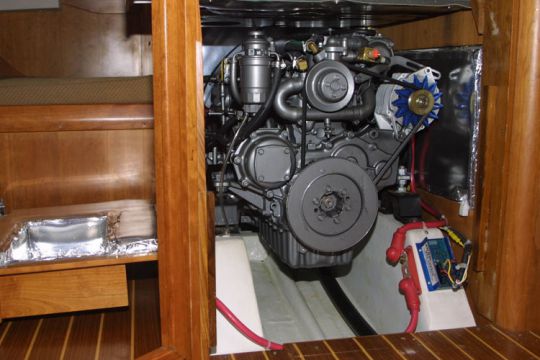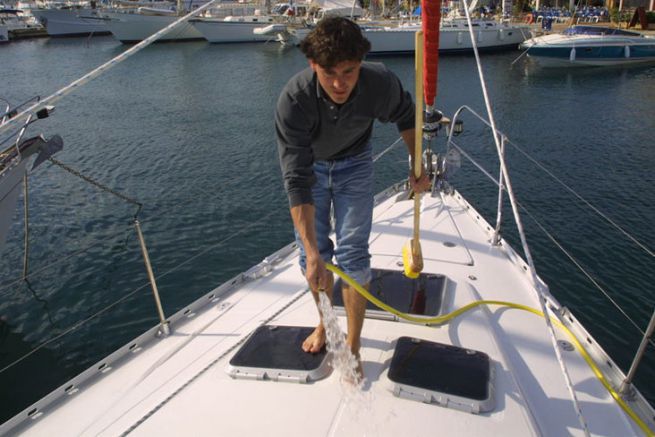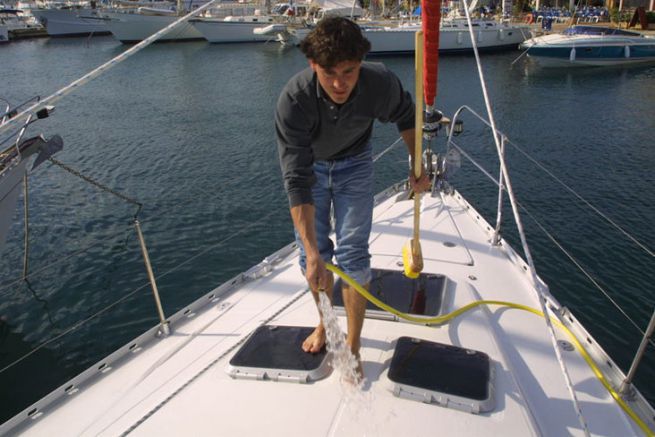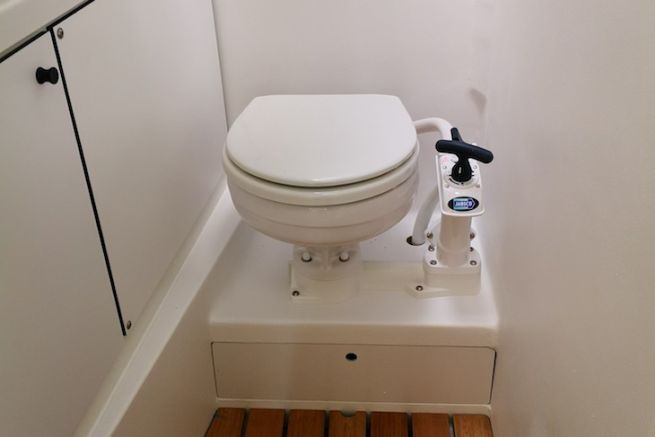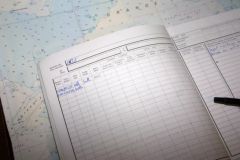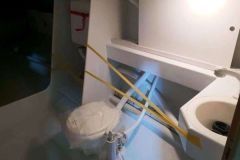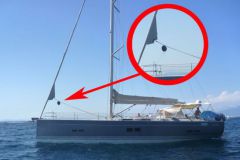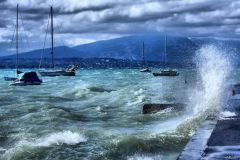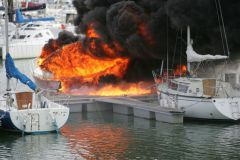Black water
A boater produces about 10 L of black water per day. But what is black water? We are talking here about toilet and WC water, which is considered the most polluting by the "MARPOL" convention (NDRL: The English MARine POLlution convention concerns the different types of pollution from ships).
These organic "wastes" are directly returned to the sea, but do not pose a high risk to the environment since they are naturally eliminated. On the other hand, black water represents a bacteriological danger for humans, particularly near the coast or in busy anchorage areas.
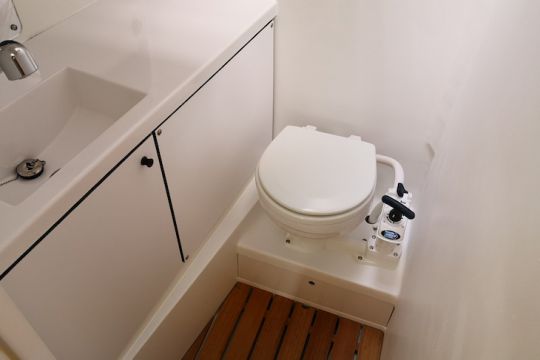
What effects?
They can promote the proliferation of algae (eutrophication) and plants, which can pose a risk to marine fauna. Above all, they can promote the development of bacteria (staphylococci, salmonella, etc.) and viruses, but also the presence of parasites or drug residues in bathing water, but also in drinking water supply systems.
Grey water
Grey water concerns washing water - from life on board and from the boat - and therefore contains additional products: shower, dishes, laundry, furniture, deck cleaning, etc... Considered less polluting than black water, because it represents a small proportion of wastewater, it nevertheless has a more harmful impact on the aquatic environment. Unlike black water - which is of human origin - grey water contains chemicals.
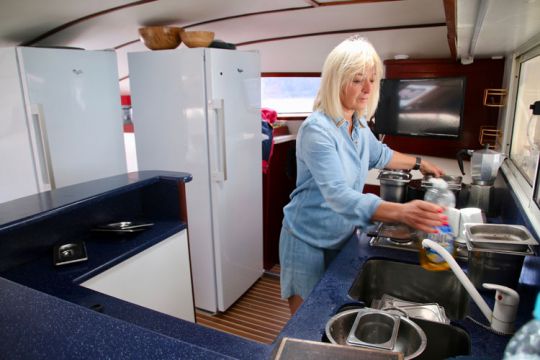
What effects?
Grey water promotes the development and proliferation of algae (eutrophication). They also have a toxic effect on marine and coastal flora and fauna.
Fatty water
Grey water and black water can be separated from bilge water and engine exhaust cooling water, known as swill.
According to the Federation of the Nautical Industries, bilge waters are " a mixture of solvents, surfactants (contained in detergents) and metal salts (greases and lubricants). Some substances are persistent organic pollutants (POPs) that accumulate in the environment without breaking down. Others are aquatic toxins, such as aromatic hydrocarbons (BTEX55), oil, copper, iron, mercury, zinc and nickel, organic metal salts, detergents and solvents"
Cooling water from the exhaust of marine diesel engines contains various pollutants related to the combustion of hydrocarbons: polycyclic aromatic hydrocarbons (PAHs), toluene and sometimes metals.
